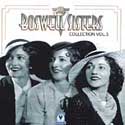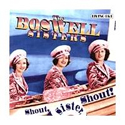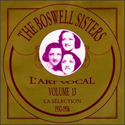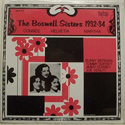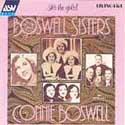| |
The Boswell Sisters (Inducted 1998)
Definitely the most talented and arguably the all-around best jazz vocal group of all
time, the Boswell Sisters parlayed their New Orleans upbringing into a swinging delivery that featured not only impossibly close harmonies, but countless maneuvers of vocal gymnastics rarely equalled on record. Connee (sometimes Connie), Helvetia (Vet), and Martha Boswell grew up singing together, soaking up Southern gospel and blues through close contact with the black community. They first performed at vaudeville houses around the
New Orleans area, and began appearing on local radio by 1925. At first, they played
strictly instrumentals, with Connee on cello, saxophone and guitar; Martha on piano;
and Vet
on violin, banjo, and guitar. The station began featuring them in a vocal
setting
as well, with Connee taking the lead on many songs (despite a childhood
accident that had
crippled her and left her in a wheelchair).
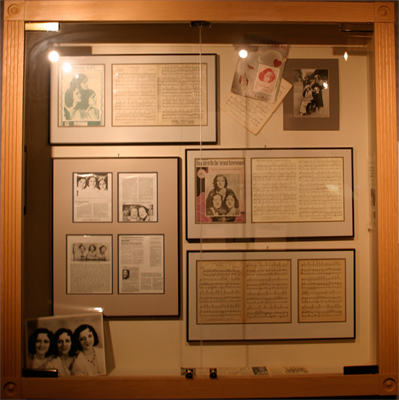
Word of their incredible vocal talents led to appearances in Chicago and New York,
and the Boswell Sisters began recording in 1930 for Victor. By the following year,
they'd moved to Brunswick and reached the Hit Parade with "When I Take My Sugar
to Tea," taken from the Marx Brothers' film Monkey Business and featuring the Dorsey Brothers Orchestra in support. The trio continued to work with many of the best jazzmen
in the field (including Eddie Lang, Joe Venuti, and Bunny Berigan), and appeared in the
1932 film extravaganza The Big Broadcast with Bing Crosby and Cab Calloway.
The Boswell Sisters hit the top of the Hit Parade only once, in 1935, with
"The Object of My Affection" from the film Times Square Lady. One year later however, both Martha and Vet retired from the group in favor of married life.
Connee had already made a few solo sides for Brunswick as early as 1932, and she continued her solo career in earnest after the Boswell Sisters parted. She hit number
one twice during the late '30s, with the Bing Crosby duets "Bob White (Whatcha Gonna
Swing Tonight?)" and "Alexander's Ragtime Band," and continued recording into the '60s.
— John Bush
http://www.allmusic.com
Soundtrack - Filmography
|
|


